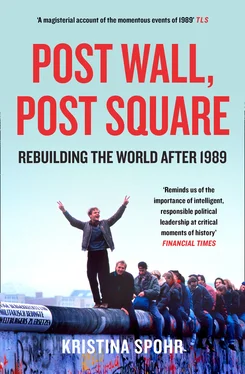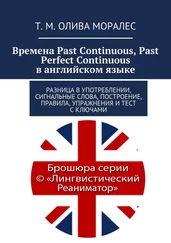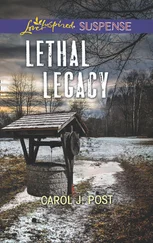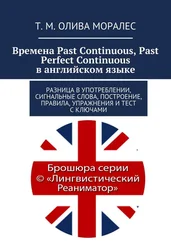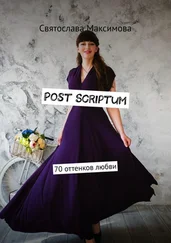Yet Kohl still held back. On Monday 20 November a worried Teltschik noted in his diary: ‘international as much as domestic discussion over the chances of German unity has fully erupted and can no longer be stopped. We are more and more conscious of this, but the chancellor’s directive remains the same: to exercise restraint in the public discourse. Neither within the coalition, and therefore domestically, nor on the foreign plane, does he want to open himself to attack.’
Teltschik saw this as a decisive moment for Kohl, at home and abroad. Chewing things over with Kohl’s inner circle that evening, with an eye on the ‘election marathon’, they concluded: ‘The high international reputation of the chancellor should be used more in domestic politics, and the German question could serve as a bridge to improve his image.’ The opposition should be confronted ‘head-on’.[87]
With all this still swirling around in Teltschik’s head, next day in the early-morning briefing with Kohl, they took in the implications of Monday’s mass demonstrations across East Germany with the unmissable new slogan ‘ Wir sind ein Volk ’. ‘The spark has ignited,’ he thought. He was also turning over in his mind a line from Augstein’s column, echoing a famous phrase from Adenauer, ‘ der Schlüssel liegt im Kreml ’ – the key to unity lies in the Kremlin.[88]
The first big item on his diary that day, 21 November, was a meeting at 10.30 a.m. with Nikolai Portugalov, on the staff of the Central Committee of the CPSU, with whom he had meetings fairly frequently. Although finding Portugalov rather foxy, even slimy, Teltschik respected his intellect and grasp of the German scene and always relished such opportunities to get news directly from Moscow and not via arch rival Genscher’s Foreign Ministry. On this occasion, however, Portugalov’s manner was unusually grave. He said he was conveying a message for the chancellor himself and then handed over a set of handwritten pages about Soviet thinking on the German question.
One paper was entitled ‘Official Position’. This mostly reaffirmed the pledges made by Kohl to Gorbachev about non-interference in GDR affairs, and included references to their 12 June summit. For now, it stressed, there ought to be a modus vivendi between the two German states, and envisaged Modrow’s proposal of a treaty union as the way forward. Otherwise the GDR would find itself existentially threatened. Significantly, the paper also declared bluntly that an all-European peace order was an ‘absolute prerequisite’ for resolving the German question.[89] Such a peace order would, of course, take years to establish but the document showed some signs of movement. It indicated that the idea of German–German rapprochement through a confederation was something the Soviets were already discussing at the Politburo level and were prepared to accept in principle. Indeed it echoed a message received in Bonn from the Moscow embassy that Shevardnadze, in utterances on 17 November, had rejected unilateral changes of the status quo but approved the idea of mutual peaceful changes within ‘an all-European consensus’.[90]
What really grabbed Teltschik’s attention, however, was the document headed ‘Unofficial Position’. This began, rather theatrically: ‘The hour has now come to free both West and East Germany from the relics of the past.’ After a few generalities about the immediate situation, Teltschik was struck by an almost languid proposition: ‘Let’s ask purely theoretically: if the Federal government envisaged pushing the question of “reunification” or “new unification” into practical politics …’ Developing this hypothesis, the paper said it would be necessary among other things to discuss the future alliance membership of both German states and, more specifically, how to extract West Germany from both NATO and the European Community. And, on the other side, what would be the consequences of a future German confederation within the EC? This, pondered the paper, could become the germ of a pan-European integration project, but, then, how could the Soviet Union conduct its trade within East Germany via Brussels and cope with EC import taxes and other regulations? The paper stated bluntly that, ‘in the context of the German question, the Soviet Union was already thinking about all possible alternatives, effectively thinking the “unthinkable”’. The paper ended by saying that Moscow could ‘in the medium term’ give a ‘green light’ to a German confederation, providing it was completely free from foreign nuclear weapons on its soil.[91]
Teltschik was electrified by what he read. This combination of blue-sky thinking and diplomatic flexibility was unprecedented and sensational. How to balance the ‘official’ and ‘unofficial’ papers was difficult but they clearly revealed that what Moscow was saying publicly was not necessarily a guide to what it might be willing to do. Rushing out of the meeting with Portugalov, Teltschik managed to have a word with Kohl before the chancellor’s next appointment. Their conversation was only brief but Teltschik had sown the seed in Kohl’s mind that, in view of the signals from Moscow, this was an opportune time to go onto the offensive. Kohl was reinforced in this opinion during the afternoon when his head of Chancellery, Rudolf Seiters, returned from a trip to East Berlin, full of news about the reforms under way and the talk about treaty union. Before he left for his trip to Strasbourg – to square François Mitterrand and the EC – Kohl told Teltschik to have something ready for his return. For the first time the chancellor talked about taking a ‘step by step’ approach on the German question. An overall political strategy was finally beginning to germinate.[92]
While Kohl was away, Teltschik was alarmed to learn, first, that Mitterrand was going to visit East Germany before Christmas and also intended to meet Gorbachev in Kiev on 6 December. Even more disconcerting, Paris had not informed Bonn in advance, before the news appeared on the wire services. What, Teltschik wondered, were the French and Soviets plotting? Yet news from Genscher, visiting Washington, was much more encouraging: the foreign minister had stressed the momentum of ‘unification from below’ and warned against any attempt at interference by the four victor powers. To his delight, at the State Department Baker had simply responded by stating America’s full support for German unity without any caveats. And so, with a green light from Washington, positive signals from Moscow, and endorsement in Strasbourg from Mitterrand and the EC, Teltschik found himself frantically planning a speech for Kohl – what would be a ten-point programme.[93]
In their evening meeting on Thursday 23 November, Kohl agreed with Teltschik that Deutschlandpolitik was the boss’s job ( Chefsache ) and that it was now time to lead opinion formation both in Germany during an election year and with regard to the Four Powers (i.e. the US, the USSR, France and the UK as Allied victors of the Second World War). Otherwise his government would be faced with a diktat.[94] It was also decided then that Kohl would present his proposals for achieving German unity at the earliest suitable opportunity, which would be five days later, on 28 November, during the Bundestag’s scheduled debate on the budget. So a small team of eight, led by Teltschik, worked around the clock in utmost secrecy to prepare a draft of the speech. On the afternoon of Saturday 25th this was taken by car from Bonn to the chancellor, who was at his home in Oggersheim.[95]
So obsessed was Kohl about possible leaks, or even being talked out of the speech by his coalition partner or his NATO allies, that everybody in the know was sworn to total silence. For the rest of the weekend, he worked over the draft with a handful of trusted friends and his wife Hannelore, scribbling corrections and queries on the draft and periodically calling Teltschik on the phone. Then, on Sunday night, he asked Hannelore to type up an amended version on her portable typewriter.[96]
Читать дальше
